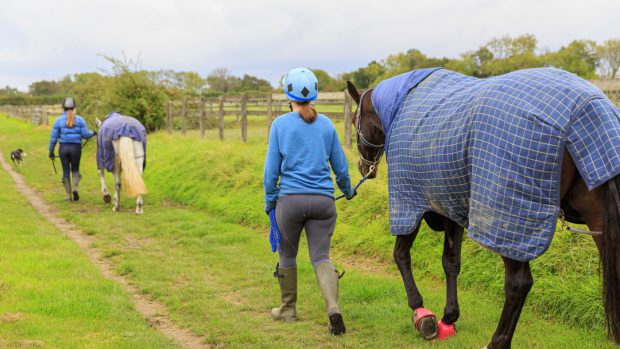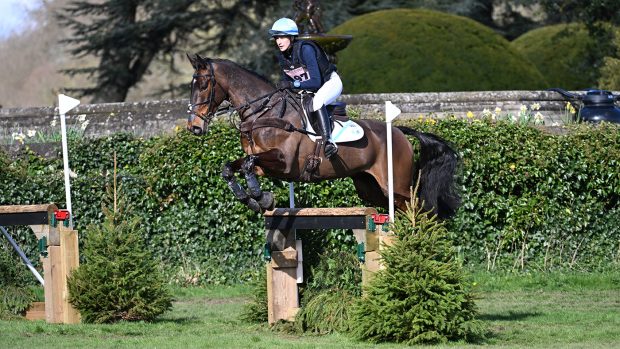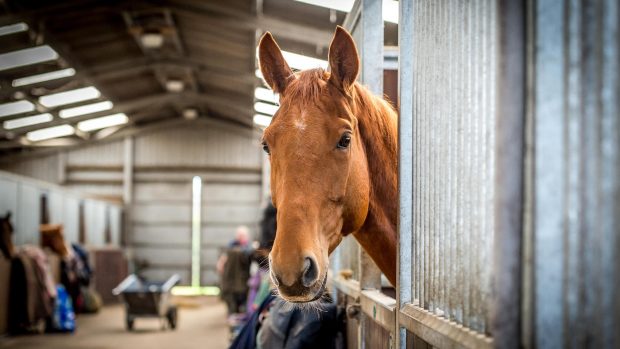The risk of the European outbreak of equine herpes virus (EHV-1) affecting horses in the UK is considered “very small” but riders and owners are recommended to act “responsibly”.
Following confirmed reports of EHV-1 outbreaks in France, Germany and Belgium relating to the outbreak of the virus at a showjumping tour in Valencia, the FEI announced last night (1 March) that international competition in 10 countries had been suspended until 28 March.
David Rendle, chair of the British Equine Veterinary Association’s health and medicines committee told H&H the recent cases of neurological herpes linked to horses competing is “clearly a concern” but said provided all competitors act responsibly, the risk to other horses in the UK “should be very small”.
“All horses that were potentially in contact have been traced and the competitors have been informed. All competitors have been issued with clear guidelines on isolating, monitoring and testing their horses and will not be able to compete their horses again at FEI events until the testing requirements are fulfilled,” he said.
“Provided competitors follow this guidance, isolate their horses effectively, and act responsibly there is minimal risk of spread within the UK. Equine herpes virus can be highly contagious but it typically spreads horse to horse over short distances of only a few metres. Unlike other viruses such as influenza, spread over greater distances is very unlikely and effective quarantine precautions should halt disease transmission.”
Mr Rendle added that BEVA emphasises the importance of competitors fully adhering to the guidelines provided by the FEI, and BEVA urges vets to remain vigilant to the possibility of EHV in horses returning from Europe.
“This episode serves as a reminder of the importance of biosecurity, vaccination and having plans in place for protecting horses travelling to, and returning home from, events. It also highlights the value of being able to rapidly identify and trace horses returning from competition,” he said.
“The signs of infection with equine herpes virus include fever, coughing and clear nasal discharge. The neurological form is characterised by lack of coordination, weakness, difficulty in urinating and defecating and inability to stand up. Some strains are also associated with abortion. Any horses exhibiting these signs should be isolated immediately and veterinary advice should be sought.”
British Equestrian’s head national vet John McEwen told H&H that there is a small number of British riders in Valencia but added that no horses had returned to the UK from the venue, and there have been no cases of EHV-1 in the UK relating to Valencia.
“I think it’s sensible to recommend riders should take as little risk as possible. It is very infectious and because it has the consequences of the neurological attached it is a very serious issue.”
Continued below…

‘The most serious outbreak in Europe for decades’: four horses die from EHV-1 as more cases confirmed
In an update today (1 March) the FEI confirmed four horses had died from the neurological form of EHV-1 in

International competition halted owing to ‘rapid evolution’ of EHV-1 outbreak
Yesterday (1 March) the FEI confirmed four horses had died in Valencia, 84 horses at the venue were showing clinical

Subscribe to Horse & Hound this spring for great savings
“We need as much information as we can about the outbreak, where horses have gone that went from the show that may have been infected, and where the subsequent outbreaks are through Europe,” he said.
Mr McEwen added that British Equestrian has a body called the equine infectious diseases advisory group which helps advise the organisation’s member bodies on all major potential disease outbreaks.
“We also have an emergency response group where if we had an outbreak in the UK, the group would be there to support immediately,” he said. “You never know when you’re when you’re going to be hit by a crisis, and when something like this happens people aren’t always used to dealing with these types of crises. But having something they can fall back on that is documented and all the advice is there, written and checked by senior members of the profession who are the leaders in disease speciality, is quite useful.”
Horse & Hound magazine, out every Thursday, is packed with all the latest news and reports, as well as interviews, specials, nostalgia, vet and training advice. Find how you can enjoy the magazine delivered to your door every week, plus options to upgrade to access our H&H Plus online service which brings you breaking news as it happens as well as other benefits.





